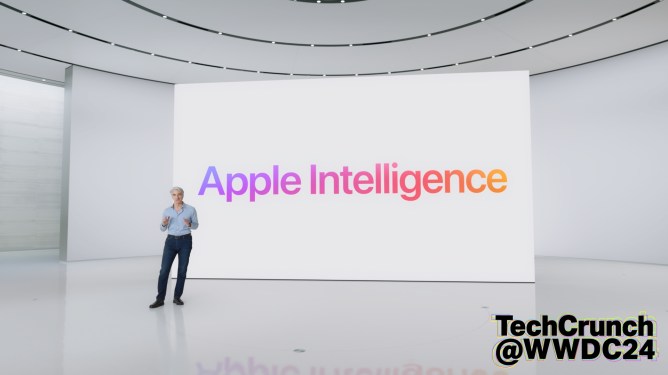Apple may be partnering with Meta on artificial intelligence projects
Apple’s AI Strategy: A Partnership with Meta and a Focus on Practicality
As Apple continues to invest in artificial intelligence (AI), it is clear that the company is taking a more practical approach to integrating AI into its products. While some tech giants, like Google and Microsoft, are racing to develop their own AI-powered chatbots and virtual assistants, Apple is focusing on building partnerships with established players in the field.
A Partnership with Meta
Recently, reports emerged that Apple is in talks with Meta, Facebook’s parent company, about a potential partnership. According to The Wall Street Journal, Apple and Meta are discussing a deal that would bring ChatGPT, a conversational AI developed by OpenAI, into Siri. While the details of the proposed partnership are still unclear, it is likely that Apple will use its vast user base to promote and integrate ChatGPT into its ecosystem.
A partnership with Meta could be beneficial for both companies. For Apple, partnering with Meta would allow it to leverage the company’s expertise in AI and machine learning, while also providing validation for Meta’s generative AI technology. On the other hand, a deal with Apple would give Meta access to a vast user base, potentially opening up new revenue streams through premium subscriptions.
Apple’s Practical Approach
One of the most striking aspects of Apple’s AI strategy is its focus on practicality. Unlike some of its competitors, which are racing to develop revolutionary new technologies, Apple is taking a more measured approach. By adding AI-powered features to its existing products, Apple can leverage its existing user base and infrastructure without having to start from scratch.
This approach may seem conservative at first glance, but it has its advantages. By focusing on incremental improvements rather than wholesale reinvention, Apple can build trust with its users and avoid the pitfalls of over-promising and under-delivering. As Sarah Perez noted, "Apple’s approach to AI currently sounds a bit boring and practical — rather than treating this as an opportunity for wholesale reinvention or disruption, it’s starting out by adding AI-powered features like writing suggestions and custom emojis to its existing products."
No Payment Required
Interestingly, Apple is not offering to pay for these partnerships. Instead, the company provides distribution to AI partners who can then sell premium subscriptions. This approach may seem unusual at first glance, but it allows Apple to maintain control over the user experience while still benefiting from the expertise and technology of its partners.
Elon Musk’s Concerns
As Apple continues to integrate ChatGPT into its ecosystem, one person is watching with great interest: Elon Musk. As co-founder of OpenAI, Musk was instrumental in developing the company’s first AI-powered chatbot. However, after leaving OpenAI and launching his own startup, xAI, Musk has expressed concerns about the potential risks associated with integrating ChatGPT into Apple’s operating systems.
Musk has warned that Apple may be putting users’ data at risk by sharing their questions and interactions with ChatGPT. In response to these concerns, Apple has stated that it will ask for users’ permission before sharing any data with ChatGPT. This move is likely intended to alleviate Musk’s concerns while also providing reassurance to Apple’s users.
A Deal with Meta: What’s at Stake?
While the details of the proposed partnership between Apple and Meta are still unclear, there are several key points that are worth considering:
- AI Validation: A deal with Apple would provide validation for Meta’s generative AI technology.
- Distribution: Apple would provide distribution to Meta, allowing it to sell premium subscriptions to its users.
- Revenue Streams: The partnership could create new revenue streams for both companies through the sale of premium subscriptions.
Regulatory Considerations
In addition to the benefits and risks associated with a potential partnership between Apple and Meta, there are also regulatory considerations that need to be taken into account. For example:
- Digital Markets Act (DMA): The DMA is a regulation aimed at promoting competition in digital markets. As part of its implementation, Apple has stated that it will hold back iPhone Mirroring and SharePlay Screen Sharing from the European Union.
- User Privacy: Apple’s decision to ask for users’ permission before sharing their data with ChatGPT highlights concerns about user privacy.
Conclusion
Apple’s AI strategy is a complex and multifaceted approach that involves partnerships, practicality, and regulatory considerations. By focusing on incremental improvements rather than revolutionary new technologies, Apple can build trust with its users while also benefiting from the expertise and technology of its partners. As the company continues to integrate ChatGPT into its ecosystem, it will be interesting to see how this partnership develops and what implications it has for both companies.
Related Articles
- ChatGPT: Everything you need to know about AI-powered chatbots
- Meta’s AI strategy: A focus on practicality and partnerships
- The benefits and risks of integrating ChatGPT into Apple’s ecosystem



